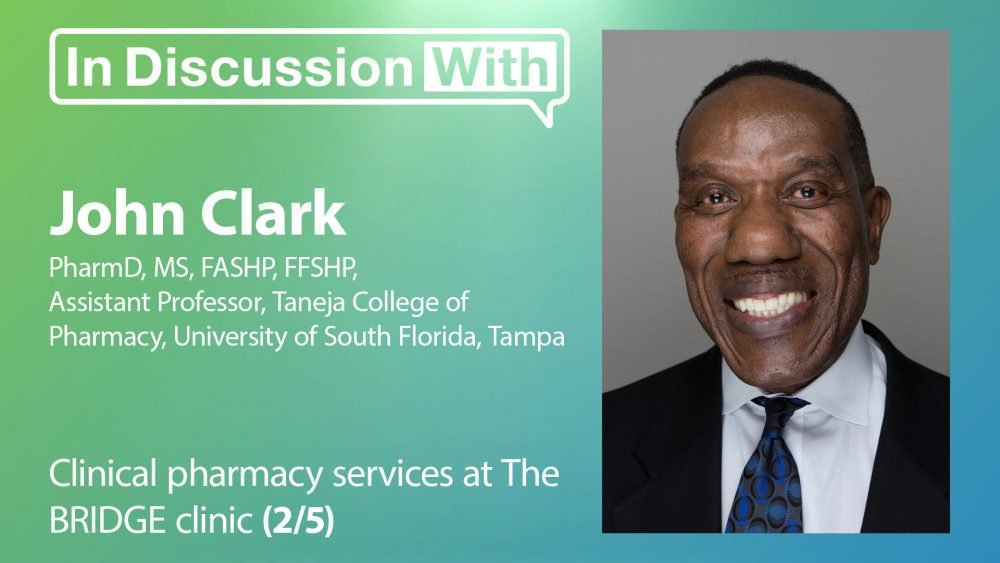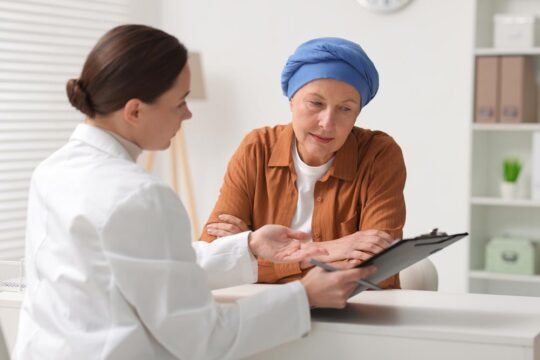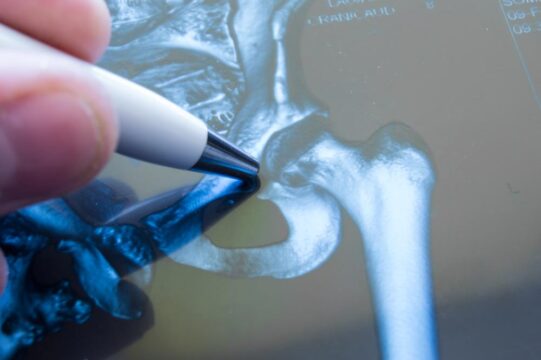Advertisment
Clinical pharmacy services at The BRIDGE clinic

The pharmacy team at The BRIDGE healthcare clinic routinely performs a number of tasks related to effective use and ongoing supply of medicines, ambulatory care clinical pharmacist, Dr John Clark, College of Pharmacy, University of South Florida, explains.
A major challenge for the pharmacy team at the BRIDGE healthcare clinic is trying to find affordable medicines for the clinic patients. “We are unable to provide them free medication in all cases – most of the time it’s at a discount. So rather than paying what you and I may pay for – full fees for medicine that may not be covered by insurance – we try to find discounted medications”, explains Dr Clark. To this end they have compiled a formulary for discounted drugs that are available. One mechanism is through the indigent drug programs. These are programs run by the pharmaceutical industry that offer free or low-cost medicines to qualifying patients who lack health insurance and/or prescription drug coverage. These are commonly used for new anticoagulants, for example, says Dr Clark.
Medication adherence is the next important issue and the team tries to improve patients’ ability to take their medicines correctly. “If they can bring them in to show you what they’re taking, that’s good” says Dr Clark. The next step is to find out if a patient has sufficient supplies to last until the next appointment and, if not, to find a mechanism to supply refills.
Medication reconciliation is another important activity for the pharmacy team, especially ensuring that patients are not receiving unnecessary medications. Dr Clark recalls a patient whom he saw recently who was taking ciprofloxacin, vitamin D, omeprazole and phenazopyridine that appeared to have been started in 2015. After investigation, both the ciprofloxacin and phenazopyridine were discontinued leaving her with only two active treatments. “We do the [medicines] reconciliation every day that we come in – I have one group of students that does nothing but that”, he adds.
Patient education forms a large part of the work and involves “almost every patient that we see”. In addition, they also “try to determine if the medicine is working or not working …. and it’s not uncommon for us to find some things that appear to not be working. So, if that’s not working, we will make a recommendation to the medical staff to switch to medication to something else”, explains Dr Clark.
The pharmacy team also assists with disease management. “The most common ones we see in there [are] hypertension, hyperlipidaemia, diabetes and so forth. Now what we do there is try to provide a consultative-type service so if they want us to come see the patient too we can either see them the same night that they’re there or we schedule them to come back to see just the pharmacy team”, he says.
John E Clark studied pharmacy at Southern University in Houston, Texas before completing residency training in Detroit, Michigan. He holds a master’s degree in pharmaceutical administration a PharmD. For 18 years he worked at Jackson Memorial Hospital in Miami before taking up his current appointment at the University of South Florida College of Pharmacy in Tampa, Florida. You can find Dr John Clark’s book here.
Read and watch the full series on our website or on YouTube.






